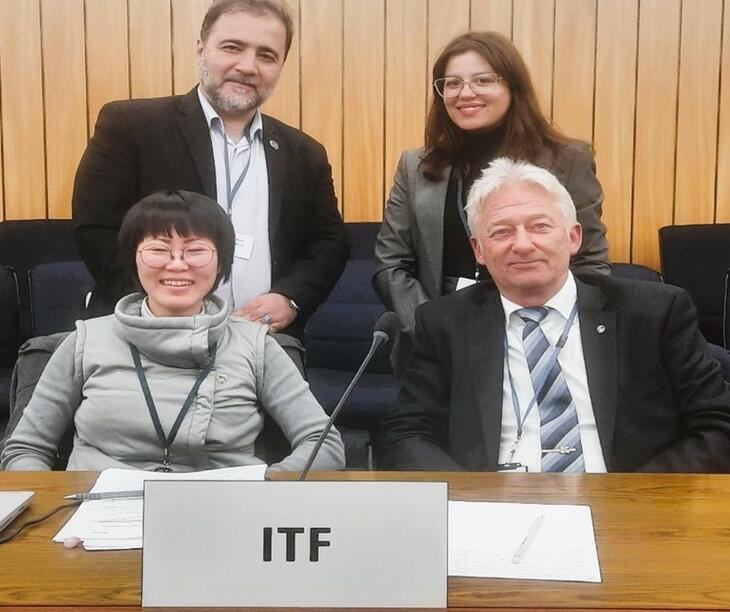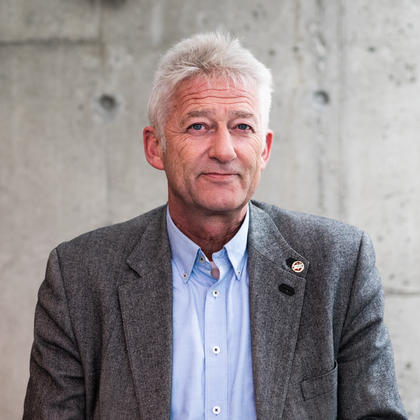SSE10: Advancing Safety Standards in the Maritime Industry

The 10th session of the IMO’s Subcommittee on Ship System and Equipment (SSE10) convened from March 4th to 8th, 2024.
Both Odd Rune Malterud and Lydia Ferrad from NUME represented the International Transport Worker’s Federation. They actively participated in the meeting, primarily contributing to the Working Group on Fire Protection.
- Fire protection: two main topics were considered. The first is related to the development of amendments to SOLAS chapter ii-2 and the FSS code concerning the detection and control of fires in cargo holds and on the cargo deck of containerships, and the second is the evaluation of the adequacy of fire protection, detection, and extinction arrangements in vehicles, special categories, and ro-ro spaces in order to reduce the fire risk of ships carrying new energy vehicles.
A special consideration was given to the most viable RCO’s, in particular:
- Fixed fire detection within the cargo space
- Fixed fire detection for containers on deck including innovative video fire detection systems.
- Portable IR camera
- Measures for firefighting, particularly taking into consideration the need for a safe firefighting and fire control system without exposing the seafarers to the risk associated with such operations, and that reassessment of available technologies for a safe firefighting and fire control system. Issues on CO2 fixed system were particularly covered in the discussion, and severe failure consequences were highlighted, making this system uncertain and needing more consideration.
A non-exhaustive list of risk-prevention-related areas that needed to be addressed by the CCC and HTW Sub-Committees was addressed, and the main items were identified
- for consideration by the CCC Sub-Committee:
- improved training of shore-side personnel
- measures regarding the improvement of the quality and reliability of shipper’s declaration
- container scanning process in port and stowage provisions for cargoes - for consideration by the HTW Sub-Committee:
- Training of seafarers (firefighting for the cargoes in question, etc.).
A two-step roadmap was agreed on to reduce the fire risk of ships carrying new energy vehicles, starting with a revision of the scientific and casualty reports to identify risks and hazards related to battery electric powered vehicles (BEVs) and new energy vehicles and fire risks, followed by a goal-based approach where it was notably noted that ships need to have systems and equipment to mitigate risks from EV battery fire beyond heat and smoke generation, recognising the risks of the battery fire such as reignition, toxicity, and explosive gas release.
The group acknowledged the necessity of revisiting training and standards for firefighters' outfits, as well as improving safety management and fire drills on board.
Furthermore, detailed discussions on five different safety systems took place, including an examination of the existing regulatory framework to identify gaps and provide clear recommendations.
Lifesaving appliances: 4 main items were considered during the discussion, noting:
- development of design and prototype test requirements for the arrangements used in the operational testing of free-fall lifeboat release systems without launching the lifeboat.
- revision of SOLAS chapter iii and the LSA code, considering the high-level hazards and the preparation of a roadmap
- amendments to SOLAS chapter iii and chapter iv of the LSA code to require the carriage of self-righting or canopied reversible liferafts for new ships.
- development of amendments to paragraph 8.3.5 and Annex 1 of the 1994 and 2000 HSC codes
- comprehensive review of the requirements for maintenance, thorough examination, operational testing, overhaul and repair of lifeboats and rescue boats, launching appliances, and release gear (resolution msc.402(96)) to address challenges with their implementation.
- unified interpretation: the session involved considerations of draft unified interpretations of provisions across various IMO conventions related to safety, security, environment, facilitation, liability, and compensation. Additionally, a revised MSC circular was addressed during the discussions.

